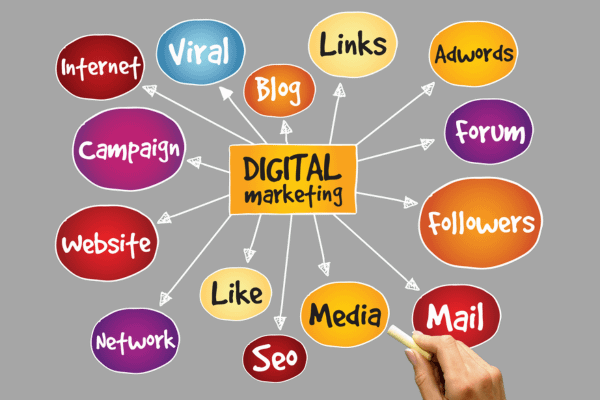In today’s fast-paced digital age, having a strong online presence is critical to the success of any business. With the vast majority of consumers turning to the Internet to research products and services, a well-executed digital marketing strategy is essential for businesses looking to reach and engage with their target audience. In this article, we’ll explore why creating a digital marketing strategy is so important and the benefits it can bring to your business.
 Developing a clear digital marketing plan is essential for any business looking to succeed in today’s online world. Here are some key steps to help you create an effective digital marketing plan:
Developing a clear digital marketing plan is essential for any business looking to succeed in today’s online world. Here are some key steps to help you create an effective digital marketing plan:
Digital Marketing vs. Traditional Advertising: What’s the Difference?
Digital marketing and traditional advertising are two different approaches to promoting a business or product. Traditional advertising refers to methods of advertising that have been used for decades, such as print ads, radio commercials, and TV commercials. Digital marketing, on the other hand, is the use of online channels to promote a business or product, including social media, email marketing, search engine optimization (SEO), and pay-per-click (PPC) advertising.Targeting and Personalization
One of the key differences between digital marketing and traditional advertising is the level of targeting and personalization. With traditional advertising, businesses create a single ad that is shown to a broad audience, without knowing much about their individual preferences or behaviors. In contrast, digital marketing allows businesses to target specific audiences based on demographics, interests, and online behaviors, allowing for a more personalized approach.Tracking and Measuring Marketing Efforts
Another difference is the ability to track and measure the effectiveness of marketing efforts. With digital marketing, businesses can use tools like Google Analytics and social media insights to track how many people are engaging with their content and measure the return on investment (ROI) of their advertising campaigns. Traditional advertising methods, on the other hand, can be more difficult to measure in terms of their impact on sales and customer engagement.Cost
Cost is also a significant factor. Traditional advertising can be expensive, with costs for print ads and TV commercials running into thousands of dollars. In contrast, digital marketing can be more cost effective, with many channels offering low-cost options like social media advertising or email marketing. While traditional advertising can still be effective for reaching a broad audience, digital marketing offers more targeted and personalized approaches, better tracking and measurement of results, and often more cost-effective options. As the world becomes increasingly digital, businesses that want to stay competitive and reach their target audience effectively should consider incorporating digital marketing into their overall marketing strategy.How to Develop a Clear Digital Marketing Plan
 Developing a clear digital marketing plan is essential for any business looking to succeed in today’s online world. Here are some key steps to help you create an effective digital marketing plan:
Developing a clear digital marketing plan is essential for any business looking to succeed in today’s online world. Here are some key steps to help you create an effective digital marketing plan:





